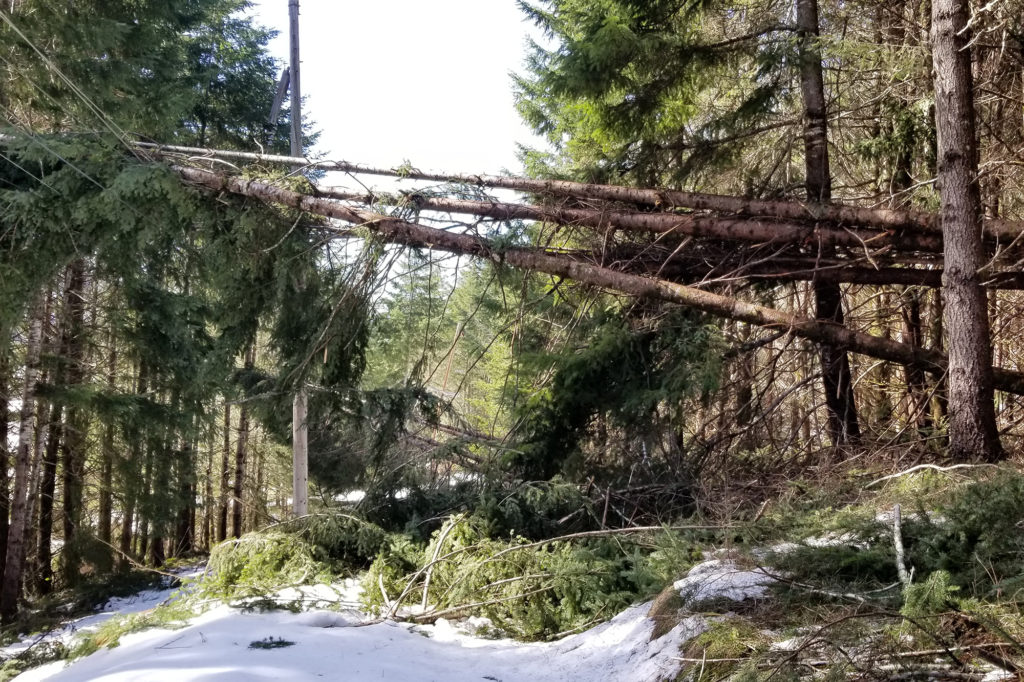
An electric cooperative serving portions of three Oregon counties from the Pacific Coast to the Cascade Mountains has been working for more than a week to restore service following a major winter storm.
Douglas Electric Cooperative is urging members to be patient and warning that it could take another three weeks in some areas before restoration is completed.
“We are talking about thousands of trees, hundreds of poles and miles of power lines on the ground,” said Todd Munsey, the co-op’s director of member services.
“We have three different options to feed Elkton, Oregon, and all of those are down,” Munsey said March 3. “Redundancy in our service territory is currently nonexistent. In this devastated state, all of our safety valves and options are gone. It is a part of why this will take so long.”
Outages were down to about 4,900 late March 4, from more than 9,700 systemwide. Douglas Electric crews are getting help from contractors, state road crews and utility crews from investor-owned Pacific Power, Baker City-based Oregon Trail Electric Cooperative and area municipalities.
“Douglas Electric now has over twice as many electric utility contractors, tree crews, flaggers and excavators as we have normal employees,” said Munsey. “Many crews are working 40-hour shifts before they get a rest period. This outage is being worked 24 hours a day.”
Heavy, wet snow and blustery Pacific winds knocked down trees towering eight to 10 stories over Oregon’s 30-foot-wide utility rights of way, causing the initial outages on the co-op’s system Feb 24.
Then major transmission lines went down, leaving most of the co-op’s members without power. In the following days, toppled trees and snow hindered damage assessments as the co-op waited for investor-owned Pacific Power and the Bonneville Power Administration to restore transmission lines feeding its system.
A damage assessment conducted by helicopter March 1 found portions of the Elkton transmission line littered with downed lines and poles. Replacement supplies will have to be airlifted into the area now clogged in some areas with 3-foot snowdrifts.
But crews have been busy, replacing lines, setting new poles and constantly cutting through masses of tree limbs, shattered poles and tangled lines in mountainous snow-covered terrain.
“Trees too numerous to count have brought down an incredible amount of our system,” said Munsey. “Some areas can be repaired, while others will need to be rebuilt.”
Fir trees, many more than 80-feet tall, fell across entire sections of the co-op’s distribution system, and replacement of poles and lines could potentially be slowed by supply shortages.
“Our operations department is coordinating efforts with the warehousemen to search far and wide for poles, wire and other equipment necessary to complete restoration,” Munsey said.
Derrill Holly is a staff writer at NRECA.